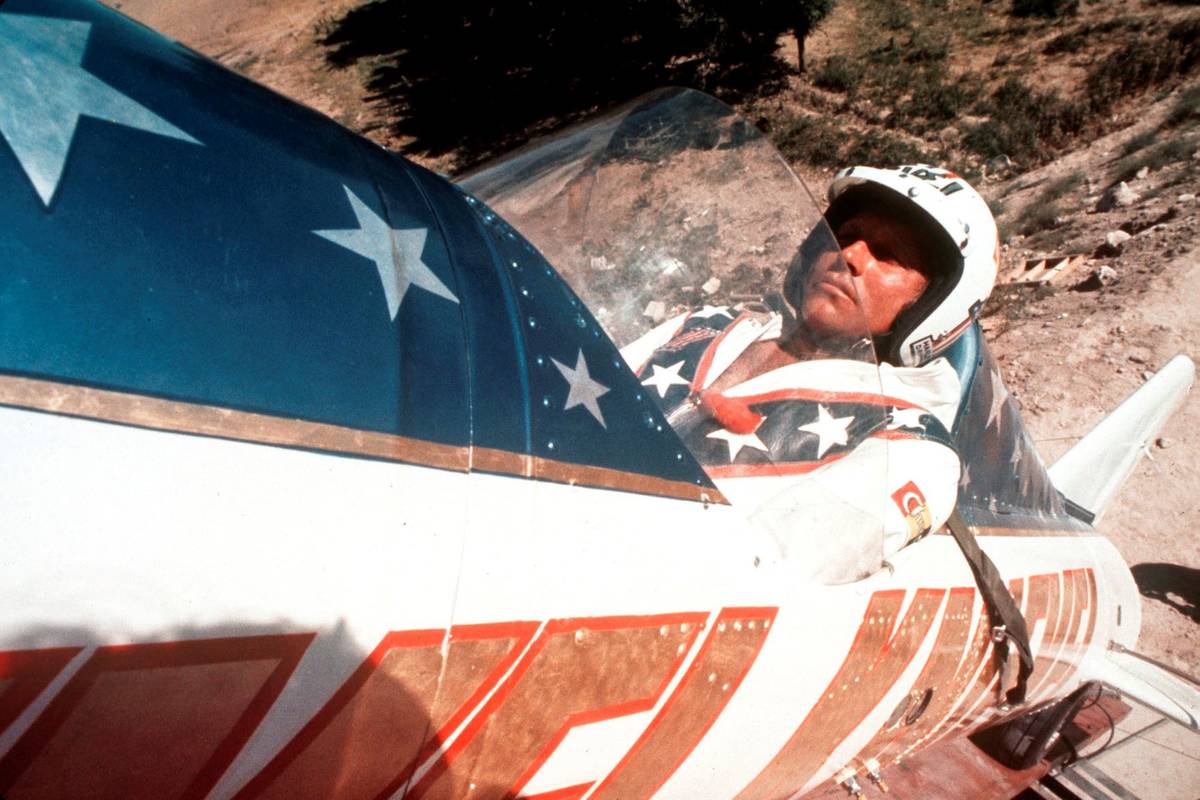Evel Knievel’s son suing Disney over character in ‘Toy Story 4’

Evel Knievel’s son is suing the Walt Disney Co., arguing that it knocked off his dad’s famous daredevil persona in “Toy Story 4.”
The film’s character Duke Caboom was a Canadian daredevil clad in a red-and-white suit. He was marketed by Disney as “Canada’s greatest stuntman” who “has never been able to do the awesome stunts advertised in his own toy commercial,” according to a federal trademark infringement lawsuit filed in Las Vegas on Tuesday by son Kelly Knievel.
Kelly Knievel runs K and K Promotions, a Las Vegas-based company that has owned publicity rights to Evel Knievel’s image and likeness since 1998, the complaint said.
Evel Knievel was an American stuntman who rose to fame in 1967 when he attempted to jump his motorcycle more than 150 feet over the Caesars Palace fountain, the complaint said. He fell and was badly injured.
Beyond epic wipeouts, Knievel was known for his outlandish outfit: “a white jumpsuit embellished only by star-spangled red, white, and blue patriotic insignia with a matching white cape and helmet and a motorcycle adorned by red, white, and blue colors,” the complaint said.
In 1973, the Evel Knievel Stunt Cycle debuted. It was an action figure doll in the well-known jumpsuit and helmet, able to be bent into any position. It came with a replica motorcycle and “a red ‘Energizer,’ which users wind up with the toy attached and then release, causing the toy motorcycle to propel forward,” according to the complaint.
When the toy was released, commercials aired with promises that the toy could go over 100 feet, though the complaint says many claim the toy fell short of the promised distance, much like Knievel himself.
When “Toy Story 4” premiered at CinemaCon in Las Vegas in April 2019, the complaint claims that Duke Caboom was “featured largely on the top left of the poster.” In the movie, the character first appears on a red and white motorcycle in a white jumpsuit covered in Canadian insignia.
“Duke Caboom’s first line in the film is, ‘look who jumped 40 buses and landed back into my life,’” the complaint said, “then introduces himself to Woody as ‘Duke Caboom, Canada’s greatest stuntman,’ before proceeding to strike a series of poses on his motorcycle, evocative of the classic Evel Knievel Stunt Cycle commercials.”
Photos in the court filing put Caboom side by side with Knievel, who died in 2007 at age 69.
Disney sells a toy called the “Disney Pixar Toy Story Stunt Racer Duke Caboom” that comes with a doll, which can be bent into any position, wearing the character’s red and white jumpsuit with a matching helmet, motorcycle and red “launcher,” the complaint said.
Consumers and film reviewers “universally caught on to the connection,” the lawsuit observed, while the movie company avoided making any public association, connection or comparison “even if directly asked.” The complaint highlights 11 film reviews that explicitly reference the connection between Knievel and Caboom, adding that many viewers acknowledged the similarities on social media as well.
“Evel Knievel did not thrill millions around the world, break his bones and spill his blood just so Disney could make a bunch of money,” Kelly Knievel said in a statement announcing the lawsuit.
Knievel is seeking unspecified damages totaling more than $300,000 on allegations that also include false endorsement and unjust enrichment. The Walt Disney Co., in a statement from corporate spokesman Jeffrey R. Epstein, said it will defend itself vigorously against what it called Knievel’s meritless claims.
Contact Alexis Ford at aford@reviewjournal.com or 702-383-0335. Follow @alexisdford on Twitter. The Associated Press contributed to this report.